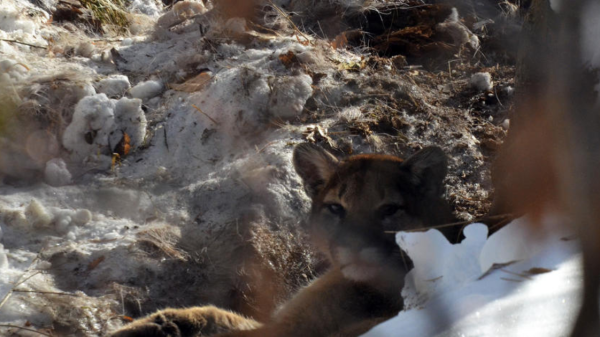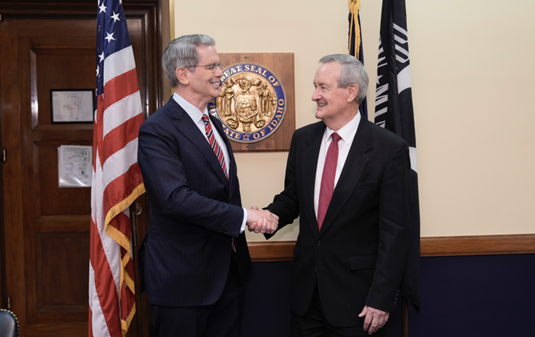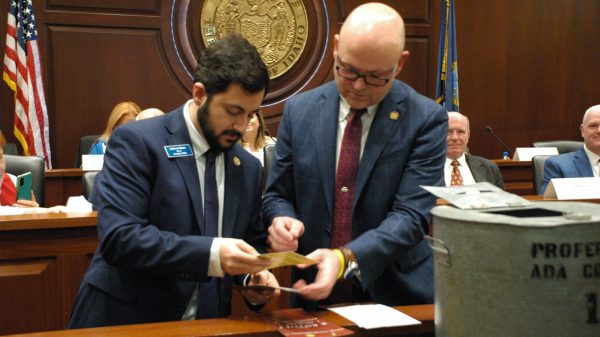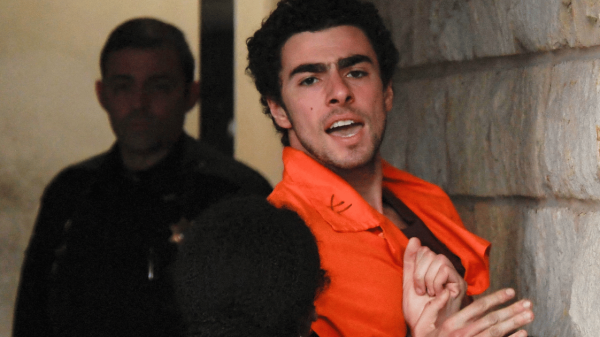PULLMAN – Washington State University assistant professor Stephanie N. Seifert has been named as a co-lead investigator for a new National Science Foundation-funded institute designed to advance research and education around viral emergence — the process of viruses jumping from animals to humans.
The NSF recently awarded a five-year grant totaling more than $12 million to establish the Verena (Viral Emergence Research Initiative) Biology Integration Institute, based at Georgetown University’s Center for Global Health Science and Security. In addition to serving as a co-lead, Seifert is the research lead for virology and will receive more than $2 million in NSF support.
Seifert and others at the institute are focusing on decoding the “rules of host-virus compatibility” and discovering key molecular interactions that shape the potential of viruses to jump between species through a combination of data synthesis, field sampling and in vitro experiments.
“Data science and computational biology have made it possible to ask questions on a scale that wasn’t possible even a decade ago,” Seifert said. “Bridging the divide between the computational and the experimental is an exciting frontier in research. I’m thrilled to be a part of this team of interdisciplinary researchers with expertise spanning computational biology, ecology, immunology, and virology – all working toward this grand challenge to reveal the underlying biology of cross-species transmission.”
The researchers began developing their approach six months before the COVID-19 pandemic started by building datasets, running experiments, and applying artificial intelligence to understand the rules of cross-species transmission.
During the next five years, the institute hopes to provide new insights into the evolution of bats’ unique immune systems, and — with additional exploratory work on mosquito vectors of disease — lay the foundation to apply innovative methods across the vertebrate and invertebrate global virome. In addition, the predictive work undertaken by the team will spark broad advances in machine learning and computational biology. The open data infrastructure being developed, including a universal public database for wildlife disease surveillance, will broaden the horizons of quantitative work in disease ecology.
“The days of ‘quiet periods’ between epidemics are over — from this point on, we’re headed from COVID-19 straight into monkeypox and into the next public health crisis,” said Colin Carlson, director and co-founder of Verena. “Our goal is to build the data and tools we need to know what’s coming tomorrow — and maybe, actually, be ready next time.”
At WSU, Seifert leads the Molecular Ecology of Zoonotic and Animal Pathogens laboratory in the Paul G. Allen School for Global Health. She studies virus populations in wildlife and domestic animals with a primary interest in understanding the mechanisms that contribute to cross-species transmission events. Research in her lab bridges evolution, animal modeling, and field ecology with primary study systems, including viruses in cattle, bats, and rodents at the human-wildlife-livestock interface.
In addition to Seifert and Carlson, other grant co-lead investigators include Daniel Becker at University of Oklahoma; Sadie Ryan at University of Florida; and Cynthia Wei at Georgetown University. The institute also includes nine additional senior researchers.















































